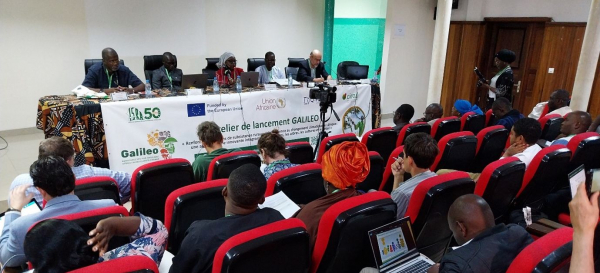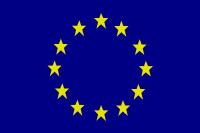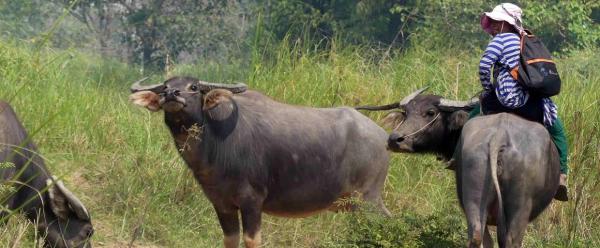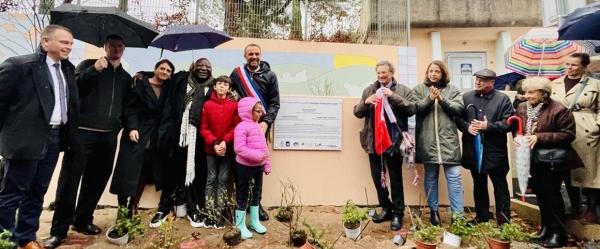- Home
- Press area
- Press releases
- Galileo project agroforestry sub-Saharan Africa
Galileo project launch: agroforestry innovation in sub-Saharan Africa

Dry cereal (millet) and legume (groundnut, cowpea) production in an agroforestry system in the Senegalese groundnut basin © C. Dangléant, CIRAD
A multi-stakeholder approach, the Galileo project will develop context-specific and people-centred agroforestry innovations in agropastoral and agroforestry systems in sub-Saharan Africa. The aim is to promote agroforestry as a lever to improve local agricultural performance and climate change adaptation and mitigation and to enhance biodiversity in sub-Saharan Africa.
This project goes beyond simply improving agricultural performance. It promotes biodiversity, diversifying the income of farmers and livestock breeders, and exploring opportunities such as the carbon footprint of agrosilvopastoral systems and payment for ecosystem services which link innovation to benefit the local economy, as well as creating agroforestry value chains that benefit everyone.
The project benefits from eight agroforestry “living labs” and four national and one regional innovation platform in four countries (Senegal, Kenya, Ghana, and Cameroon). The living labs are located in the semi-arid areas of Senegal and Kenya and in the normally humid but drought-prone areas of Ghana and Cameroon, covering a wide range of climatic conditions.
The Galileo project will last four years and is funded to the tune of seven million Euros by the European Union and the Swiss Confederation.
Responding to deteriorating quality of life
The Galileo project comes at an uncertain time for many, with global warming and its economic, social and political consequences. Quality of life for those in affected areas was already precarious; it now faces an even greater threat due to the disappearance or modification of the environment their livelihoods depend on. An acute scarcity of water and reduction of economic activities in rural areas during the dry season requires immediate action.
A project with a focus on innovation
The project puts into action innovations in crop and livestock farming, and will study the results. These innovations, which range from nurseries to tree planting, aim to improve soil fertility, carbon capture and create jobs. Planting trees will allow water to be drawn from deep in the soil, thus preventing it being wasted during runoff, and to provide foliage for cattle fodder. These tree plantations and the fodder they produce will create more jobs, including during the dry season. Ultimately, this strategy will lead to an increase in the number of cattle and more income for farms. Additionally, the innovation platforms will identify bottlenecks and help develop policy recommendations to strengthen local innovation ecosystems.
In time, we hope that Galileo will become a benchmark for agroforestry in Africa and will prove that it is possible to reconcile the protection of biodiversity with improvements in quality of life and job creation. We therefore welcome the launch of this project, a symbol of shared commitment to a fairer and more prosperous future for rural populations.
Three stages of implementation
The first year of the Galileo project will be entirely devoted to dialogue between the living laboratories and the hundreds of stakeholders involved. The challenge will then be to pool their needs and ideas in order to develop a workable plan. Then, the crops and livestock that have implemented the project’s innovations will be evaluated, in particular by comparing them to farmers who haven’t yet implemented the improvements as well as those who have. The results of the analyses will be freely available to the public, as part of the project’s strategy of openness, transparency and knowledge diffusion.
A multi-stakeholder approach
It will not just be research laboratories taking part in this project. A total of twenty-four partner organizations will provide expertise and knowledge. There will also need to be effective cooperation between local leaders and international institutions, such as the African Union. Students will be recruited, by funding doctoral research, who will help guarantee the project’s success.
Partners:
1. French Agricultural Research Centre for International Development
2. Q-Plan International
3. Institut de recherche pour le développement
4. Institut national de recherche pour l'agriculture, l'alimentation et l'environnement
5. Università degli studi della Basilicata
6. Wageningen University
7. Kobenhavns Universitet
8. Nitidae
9. Max Havelaar France Association
10. Terre Verte
11. Institut sénégalais de recherches agricoles
12. Centre de suivi écologique
13. Conseil national de concertation et de coopération des ruraux
14. Jardins d'Afrique
15. University of Embu
16. The International Centre of Insect Physiology and Ecology
17. Farm Africa
18. University of Ghana
19. International Institute of Tropical Agriculture
20. Nature Conservation Research Centre
21. Kuapa Kokoo Cooperative Cocoa Farmers and Marketing Union
22. Institut de recherche agricole pour le développement
23. Green Development Advocates Association
24. Forschungsinstitut für Biologischen Landbau Stiftung
Present at the official launch ceremony on February 12 in Dakar:
• Sékouna Diatta, Director General of the Senegalese Agency for Reforestation and the Great Green Wall
• Ibra Touré, CIRAD Regional Director and INRAE & Agreenium representative for West Africa-Dry Zone
• Pierre Morand, Institut de recherche pour le développement Representative in Senegal
• Madiama Cissé, Institut sénégalais de recherches agricoles
• Ndèye Hélène Diagne, Ministry of Agriculture, Food Sovereignty and Livestock
This project has received funding from the European Union's Horizon Europe research and innovation programme under funding agreement No 101181623.





























